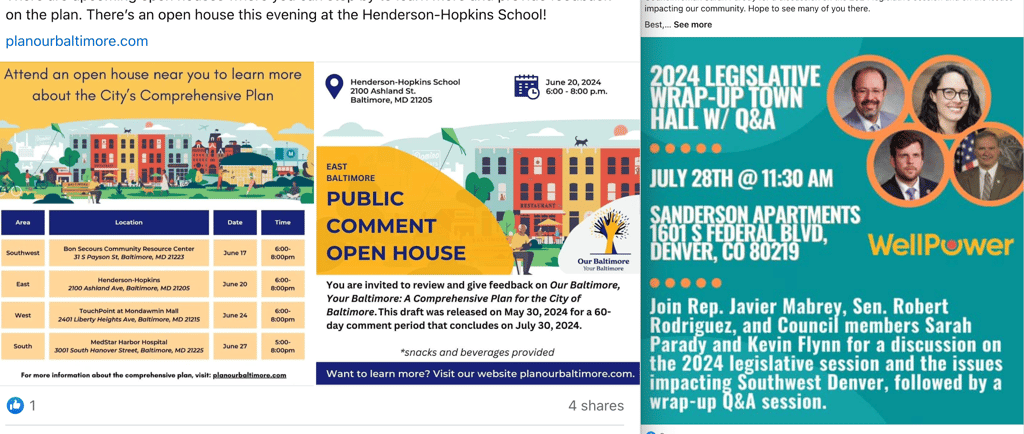Maximizing Public Engagement: A Roadmap for Strategic Use of Social Media by Public Officials
8/7/20242 min read


In the digital age, social media platforms have become essential tools for public officials to communicate with their constituencies. Evidence from the research article "Election Campaigning on Social Media: Politicians, Audiences, and the Mediation of Political Communication on Facebook and Twitter" highlights the critical roles these platforms play. Here is how strategically leveraging these platforms can engage the public and promote an informed citizenry.
Research Insights
Engagement and Mobilization
Research highlights that Facebook is primarily used by elected officials to mobilize supporters and promote campaign events. By "preaching to the converted" on these platforms, officials can encourage active participation from constituents, urging them to volunteer or vote. This direct engagement is crucial for building a strong, active, and informed base. Findings indicate that 42.3% of messages on Facebook are related to campaigning topics, compared to 26.1% on Twitter. This high engagement level shows that these platforms are effective in rallying support and driving campaign participation.
Tailored Communication
Officials tailor their messages to different platforms to align with audience expectations. For example, Facebook is leveraged for local and party-specific engagement, including addressing local concerns and fostering community discussions. By discussing issues pertinent to their constituencies on social media, officials can ensure that their communication is relevant and resonates with local audiences, enhancing the community's overall awareness and involvement in political processes.
Platform-Specific Advantages:
Different platforms support different types of interactions. Unlike X/Twitter, which is used for discussing broader policy issues and national events, Facebook's structure supports more detailed, community-focused interactions. This allows for deeper engagement and more substantive discussions with constituents. This finding suggests that certain platforms can be more effectively used for sustained, targeted community interactions rather than brief, high-level policy commentary.
Our Recommendations for Public Officials
1. Strategic Use of Social Media:
Utilize social media to share detailed information about local policies, upcoming events, and community initiatives. Regularly updating pages with relevant content keeps constituents informed and engaged.
2. Building an Informed Citizenry:
Post informative content that educates the public about critical issues, upcoming legislation, and civic processes. Fostering a well-informed electorate ensures that constituents are better equipped to participate in the democratic process and make informed decisions.
3. Encouraging Civic Participation:
Harness social media's unique ability to mobilize users to encourage voter registration, attendance at town hall meetings, and participation in public forums. Highlighting success stories of community involvement can motivate others to engage in civic activities.
In summary, public officials can significantly benefit from using social media platforms to engage with their constituents, mobilize support, and promote an informed citizenry. By strategically choosing and leveraging these platforms' capabilities, officials can foster a more connected, informed, and active community, thereby enhancing the overall democratic process.
